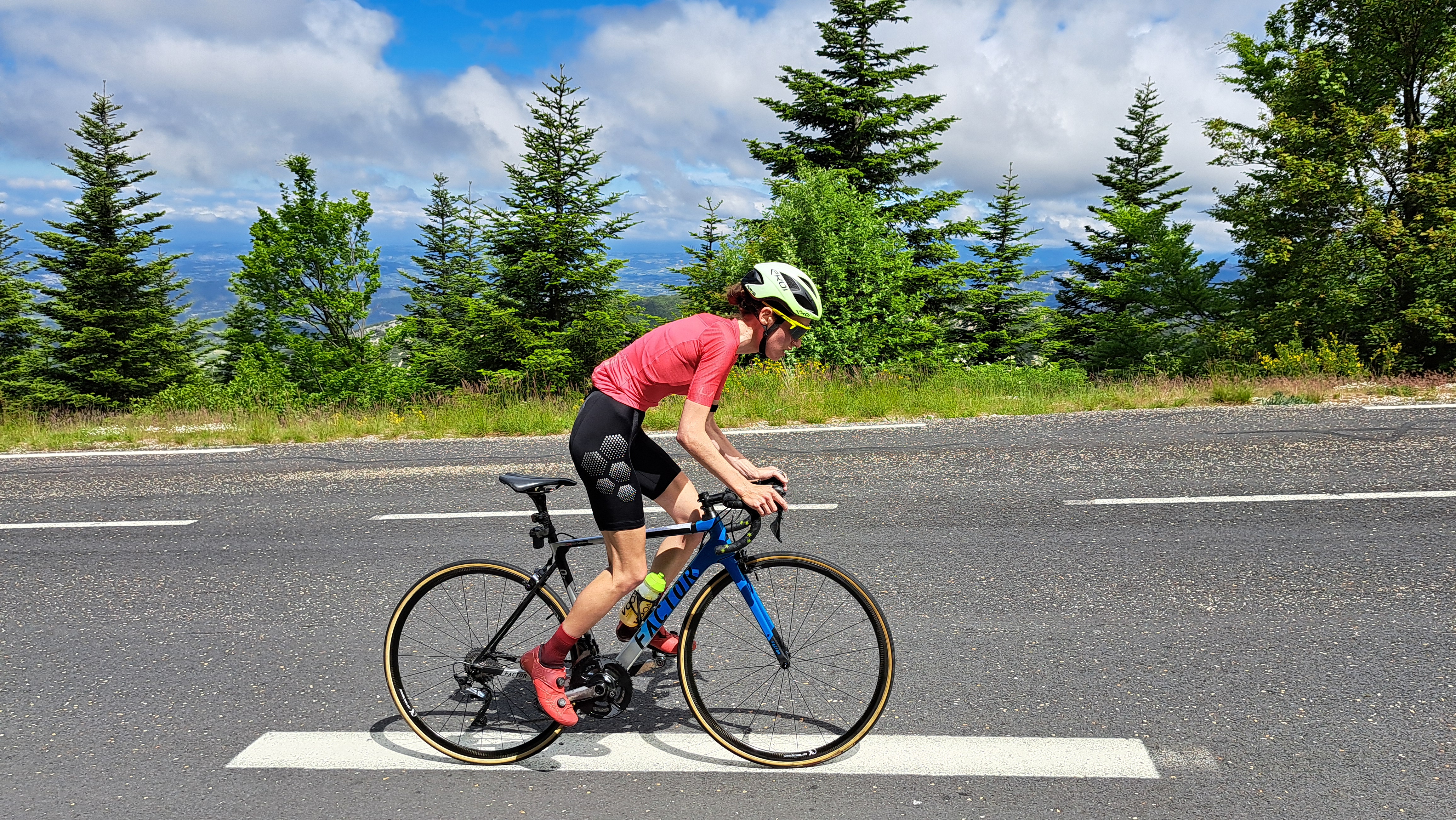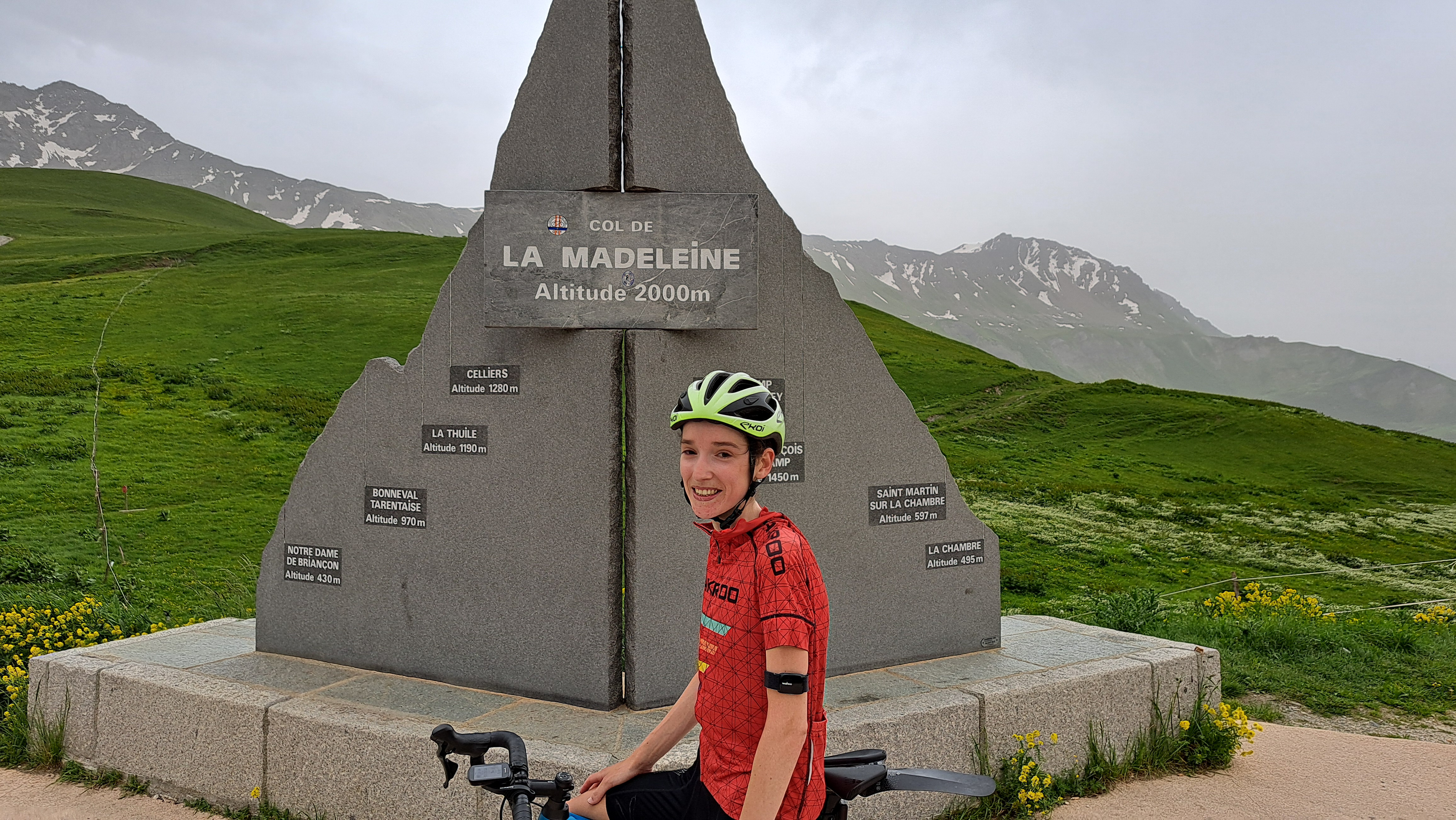
For the average amateur bike rider, the top of Strava leaderboards is a far-off land in the peaks above the clouds – or at least always just around the corner, tantalisingly close but always just out of reach.
Not so for Welsh climbing sensation Illi Gardner. She is way past the point of targeting PRs, unless that PR also comes topped with a QOM crown. Her climbing ability – and we're talking some of Europe's toughest ascents – is world class, as she demonstrated on a recent holiday to the French Alps, which saw her return with enough crowns to kit out all the royal families of Europe, and their distant relations to boot.
A litany of cycling's most storied climbs are now Welsh-owned, it seems. Col du Télégraphe? Tick. Col du Galibier? Tick. Alpe d'Huez? Oh yes – most definitely, tick again. The list goes on and on.
The 24-year-old former CAMS-Tifosi rider spent most of June in the south of France, cycling most days and finding new outlets for her phenomenal ability on the climbs. From Monaco to the Ardêche, she swept QOMs everywhere she went. Even the mighty Ventoux fell to Gardner.
She also managed to fit in the Marmotte Grimpée d'Alpe event on Alpe d'Huez, finishing the first woman by a country mile with a time of 47:48 for the 13km climb up the mountain.
Despite her talent on the bike, she is not currently part of a team and has not raced this year, having given up for a variety of reasons, including the risks, the money, and the simple fact that climbing hills is what she's into.
"I stopped road racing, I think, at the end of 2021. I just didn't really like it. Fitness and going up hills is only a very small part of road racing, and pushing myself up climbs… that's just what I enjoy.
"I do get jealous when I see the races," she admits. "Now that women's racing is starting to incorporate more mountains, I definitely get a lot of FOMO when I see them on top of mountains.
"But yeah, I think it got to the point where the risk and everything involved was just not quite worth it."

Gardner also talked about the financial issues within women's cycling that can make it so precarious as a career choice.
"Hopefully one day, the sport will get to a place where there's also more money on the woman's side," she says. "To commit to pursuing it as a profession is [currently] quite a hard thing to do. I think you really have to want it to commit your life to it."
She adds: "There's quite a divide I think. A few riders are doing all right, but then even at some of the biggest races, a lot of the field will be, kind of, struggling to get by on a cycling career."
Gardner now works as a visual effects artist on TV shows, and says that in fact, she never really considered cycling as a genuine career.
That hasn't stopped her being ultra-fit, but as she says: "The problem now is that I feel like I have fitness and nothing to do with it."
Last year, having been out of the sport for nearly two years, she took on a small but international field in the Championnat d'Europe des Grimpeurs – a mountain time trial on the San Gotthard pass in Switzerland.
Underlining her ability, Gardner won the event by a full 1:38, beating riders including Olympic champion Anna Kiesenhofer (Israel-Premier Tech-Roland) in the process.
It was the perfect event for the Welshwoman, she says, but it has unfortunately not been held this season. She is looking around for more of the same, she says.
There are British hill-climbs, too, to consider, but the short, steep effort is not really her thing – it's the longer ascents she prefers.
She's really enjoying the training, and the climbing, she says, "but the one thing missing is that there's just not enough events that are similar to the kind of riding I like doing.
"It's amazing when you can go and tackle new climbs – but you can't constantly spend your life travelling around, unfortunately."







